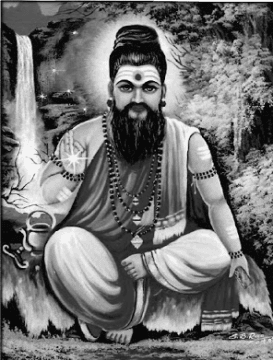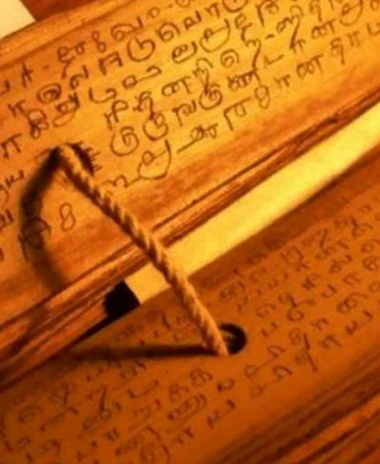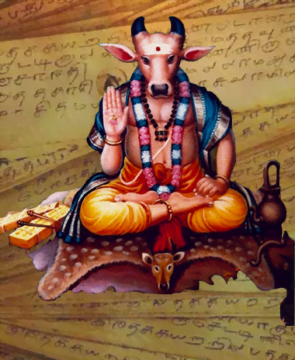The 18 Siddhars: Legendary Guardians of Tamil Mysticism and Enlightenment
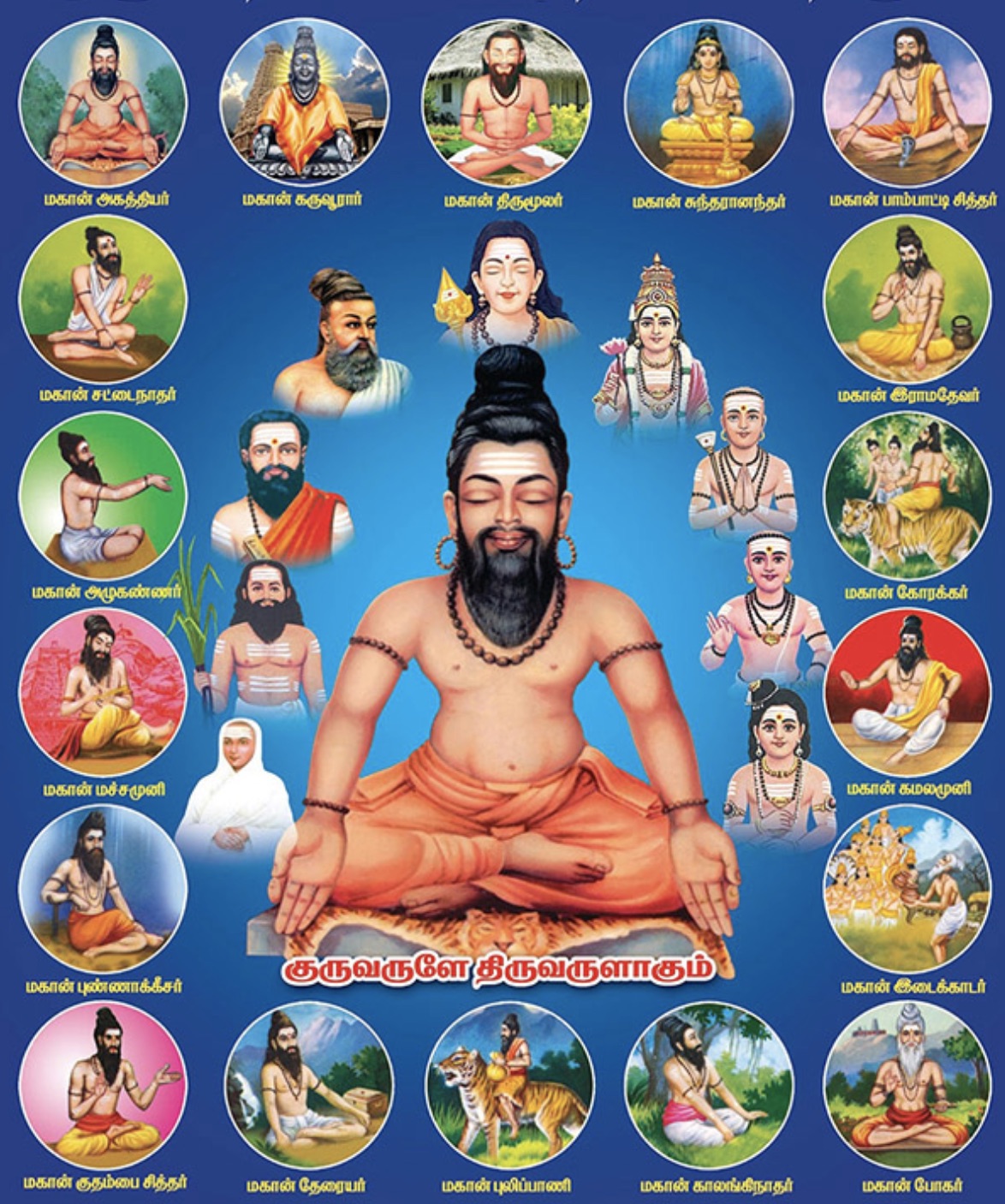

The 18 Siddhars: Legendary Guardians of Tamil Mysticism and Enlightenment
The rich spiritual heritage of Tamil Nadu is deeply intertwined with the mystical and esoteric teachings of the Siddhars—an enlightened group of sages who were said to have attained various supernatural abilities through their intense spiritual practices. Among these Siddhars, the 18 Siddhars are particularly revered. They are regarded not just as saints but as the bearers of ancient wisdom, blending medicine, alchemy, yoga, and spirituality into a profound and transformative tradition.
Who is the Siddhars?
“Siddhar” comes from the Tamil word “Siddhi,” meaning perfection or attainment. Siddhars are believed to have reached a high level of spiritual achievement, granting them extraordinary powers, including the ability to transcend physical limitations, control the elements, and even conquer death. The Tamil Siddhars are not only revered for their spiritual insights but also their contributions to medicine, astrology, and alchemy. They composed numerous texts in Tamil, many of which are still studied today for their deep philosophical and practical guidance.
The 18 Siddhars
The exact list of the 18 Siddhars varies according to different sources, but the following are among the most commonly recognised:
Agathiyar: Often considered the father of the Tamil Siddha tradition, Agathiyar is believed to have compiled the first Tamil grammar and contributed significantly to Siddha medicine and alchemy. He is also credited with various yogic texts and mantras.
Boghar: A legendary figure known for his extensive knowledge of alchemy, medicine, and yoga. He is said to have travelled to China and was responsible for the creation of the idol of Lord Murugan at the Palani temple, using a special blend of nine poisons (Navapashanam).
Thirumoolar: The author of “Thirumandiram,” a seminal text that bridges the gap between Tamil Shaiva Siddhanta and the Siddha tradition. His teachings emphasize the unity of mind, body, and spirit, and he provides detailed instructions on Kundalini yoga.
Patanjali: Though widely recognized as the author of the Yoga Sutras, in Tamil Siddha tradition, Patanjali is also revered as one of the 18 Siddhars. He contributed to yoga, grammar, and medicine.
Konganar: Known for his contributions to Siddha medicine and astrology. Konganar is believed to have mastered the art of rejuvenation and was a disciple of Boghar.
Korakkar: An adept in yoga and medicinal herbs, Korakkar is said to have had powers of teleportation and invisibility. He also authored several works on medicine and spirituality.
Karuvurar: A master alchemist, Karuvurar was a disciple of Boghar and is credited with creating powerful herbal medicines and writing extensively on Siddha practices.
Sattamuni: Known for his expertise in medicine, astrology, and alchemy. Sattamuni is believed to have composed numerous texts on these subjects and contributed significantly to the Tamil Siddha canon.
Ramadevar: A disciple of Patanjali, Ramadevar is renowned for his knowledge of alchemy and herbal medicine. He is also associated with the tradition of Rasayana, the practice of rejuvenation and immortality.
Machamuni: A Siddhar known for his work in medicine and philosophy. Machamuni’s contributions include texts on the medicinal properties of herbs and the spiritual aspects of life.
Kalangi Nathar: A Siddhar who is said to have travelled extensively, including to the Himalayas, and brought back knowledge of herbs and minerals. He is also known for his yogic teachings.
Kudambai Siddhar: A poet and mystic, Kudambai Siddhar composed several hymns and is known for his deep spiritual insights and mastery of Kundalini yoga.
Idaikadar: A Siddhar who is associated with agriculture and astrology. Idaikadar is credited with predicting future events and developing techniques to enhance crop yields.
Nandidevar: A disciple of Lord Shiva, Nandidevar is known for his work on astrology, medicine, and yoga. He is also believed to have authored several texts that are still studied in the Siddha tradition.
Kanjamalai Siddhar: A Siddhar who lived and meditated in the Kanjamalai hills. He is revered for his deep knowledge of herbal medicine and spiritual practices.
Pampatti Siddhar: Known for his love of snakes, Pampatti Siddhar is said to have mastered the art of controlling serpents and is also credited with knowledge of poisons and their antidotes.
Karuvoorar: A Siddhar associated with architecture and temple construction. Karuvoorar is believed to have designed several temples and authored texts on temple architecture and spiritual symbolism.
Punnakkeesar: A Siddhar is known for his contributions to medicine, especially in the treatment of chronic diseases. Punnakkeesar’s works are still referenced in traditional Siddha medicine.
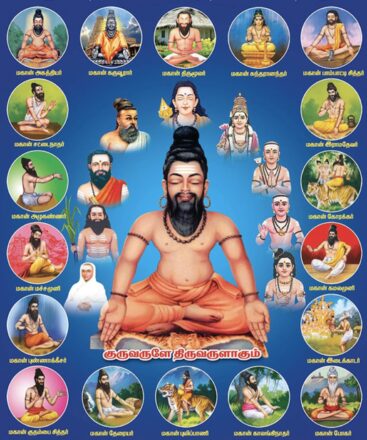
Legacy and Influence
The teachings of the 18 Siddhars continue to inspire and guide spiritual seekers, healers, and yogis. Their holistic approach to health, emphasizing the balance of body, mind, and spirit, is echoed in the practices of modern-day Ayurveda and Siddha medicine. The 18 Siddhars’ profound insights into the nature of reality, consciousness, and the human body are not only of spiritual significance but also hold valuable lessons for contemporary science and medicine.
The Tamil Siddha tradition, with its blend of mysticism, medicine, and spirituality, remains a vibrant and living tradition. It is a testament to the enduring wisdom of these ancient masters, whose teachings continue to illuminate the path of self-realization and healing for countless individuals.
The 18 Siddhars are not just historical figures; they are timeless beacons of spiritual wisdom and healing. Their teachings offer a holistic approach to life that integrates physical health, mental well-being, and spiritual growth. As we continue to explore and understand the vast knowledge they left behind, we are reminded of the deep interconnectedness of all aspects of existence—a message that is as relevant today as it was in their time.
If you have an interest in discovering your future events through Nadi Astrology at a very affordable price, click here
- Sale!

$350.00Original price was: $350.00.$108.00Current price is: $108.00.
- $300.00

